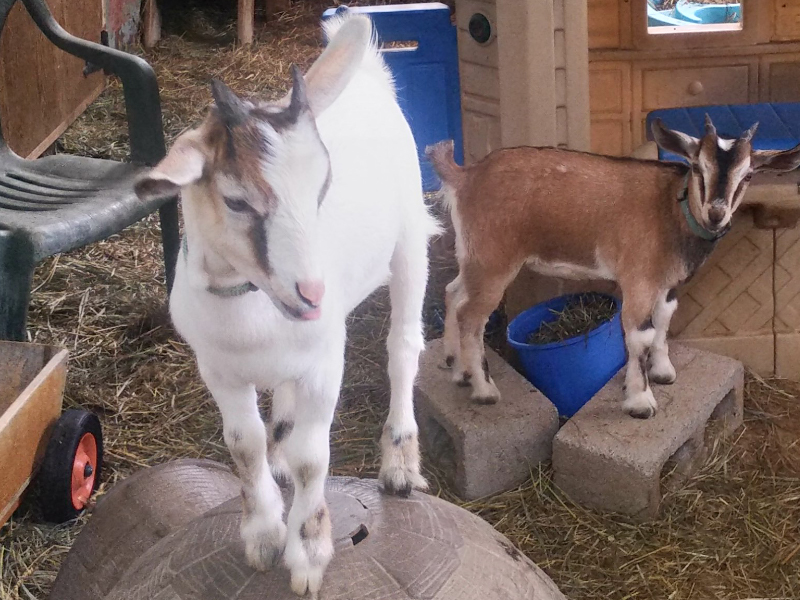“You mean, not out of their yard, right?” I asked. “No … I mean she literally has not let her children out of the house.” This was the conversation I had recently with a colleague who said she knew someone who had not allowed her children out of their home since mid-March. Parents can prevent long-term social and emotional consequences of children staying indoors for several months by giving outlets in nature. The quiet sounds of nature are calming and restorative, providing a multisensory experience to improve a child’s mood and reduce anxiety.
Sleep under the stars: Put up a tent in your backyard. Young children enjoy something new and exciting. During fall, there will be few bugs out and prime sleeping in cooler weather. Using flashlights, eating dinner or a snack, reading books and telling funny family stories are all ways to make things a little more exciting when things have seemed so cooped up.
Take a Trip to a Farm: Watching goats jump and climb, seeing horses or cows in the pasture, watching chickens peck and cluck, picking apples or pumpkins are all things children enjoy and remember. Take pictures and post them around the house to remind everyone of how much fun you had.
Go “Forest Bathing: ”Enjoy a walk or hike in the woods, along the Billy Goat Trail or at the creek. We are fortunate to have so many opportunities – from Great Falls Park and Rock Creek Park to nature centers and mountains – all within a couple of hours of the D.C. metro area.
Put your Toes in the Sand: During this time of year, it can be fun to roll up your pants legs and walk in the surf. Look for shells, notice little crabs burrowing and watch the sailboats in the Bay. There are a number of public beaches as close as Sandy Point in Annapolis.
Visit a Petting Zoo: Interacting with farm animals at a petting zoo gives kids a chance to touch, smell and hear things they aren’t experiencing at home or in the neighborhood.
Recess Outside: Playing in your backyard, running around on the neighborhood playground or riding a bicycle or tricycle on the sidewalk are great ways for kids to get exercise and boost endorphins (“feeling good” chemicals). Exercise outside in between Zoom classes and meetings can be a great way to stay connected during the work/school day.
The natural world has a tendency to reduce anxiety, boost “feeling good” endorphins, improve immune function and regulate the diurnal “sleep-wake” cycle. Children whose parents keep life as light-hearted as possible will fare far better than those surrounded by stress and tension.
A child who has been kept sequestered from other peers, extended family and the outside world may have concerning behaviors that could indicate more serious problems. The impact of a parent’s fear and anxiety on their child’s mental and emotional well-being can exacerbate separation anxiety, generalized anxiety, phobias, obsessions/compulsions, depression and a variety of other problems. Symptoms may include sleep problems, irritability, crying spells, outbursts, temper tantrums and oppositional behavior.
When thinking about the impact of the coronavirus on children, there is much to be learned from natural disasters, catastrophes and losses of any kind. When parents show that everything is okay, children feel more relaxed. As bad as the world is around us, if we can be optimistic and reassuring, our children will be more confident and secure.
United Nations Secretary-General Antonio Guterres emphasized “the cumulative impact of stress, grief and anxiety” in a recent Time magazine “Opinion” article. “Unless we act now to address the mental health needs associated with the pandemic, there will be enormous long-term consequences for families, communities and societies.” Increased access to psychiatric and psychological care is embedded in the UN’s recently-published community guidelines to respond to the mental health consequences of the crisis.
We are social beings and in large part depend on deeply woven interpersonal connections and the natural world for our physiological functions, our circadian cycles, our emotional well-being and even our immune regulation. In turn, when we are calm and relaxed, we are better able to fight off infections and prevent illness.
For all these reasons, getting children outside is important. People can be in nature, spending time with their family or friends and less at risk of contracting the coronavirus.

